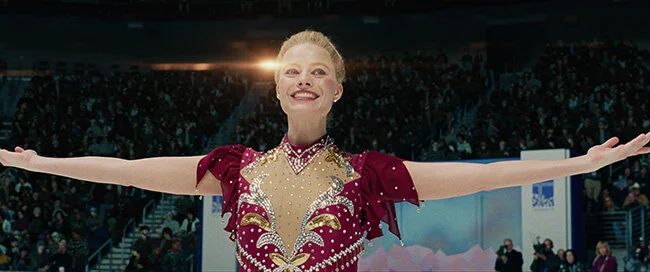An Historic Oscar
Gary Oldman in DARKEST HOUR (2017)
Having taught college cinema and history classes in Hollywood for the past fifteen years, I sometimes have to check my own reactions to the most ostensibly popular and successful period dramas of our current crop of films. The appropriately titled Darkest Hour (Dir. Joe Wright) and Phantom Thread (Dir. Paul Thomas Anderson) were two such examples. Gary Oldman’s Herculean efforts to transcend nature, society, perception and prejudice in his career-culminating role as Winston Churchill are truly laudable. It is almost as if Oldman’s latest performance has turned cultural appropriation on its head.
Oldman, as the recipient of this year’s BAFTA award for best actor, can generally be said to have accomplished an Olympian victory, in defiance of the entrenched and toxic class system that is still pervasive inBritish society, arguably on the ascendant again, after more than a half-century in decline. Or, one might simply term it the transformation of a great actor from his lowly, Cockney roots, on a career trajectory that has led him from resurrecting the iconic, working class Sid Vicious to impersonating Britain’s most inimitably aristocratic, wartime leader.
Gary Oldman and Ben Mendelsohn in DARKEST HOUR (2017)
If Oldman, as is widely expected, robs Daniel Day Lewis of the best actor Oscar on Sunday, then Lewis is probably justified in hanging up his hat. Maybe we are simply not worthy of him any more. As Darkest Hour lurches from historical reverence to pedestrian biography to laughable parody, it dawns on me that the entire enterprise was founded in covert political manipulation, the spectre of toxic neo-nationalism hiding in plain sight. I found myself slowly taking a step back from my indoctrinated patriotic reverence for Winston Churchill and for my beloved France and my native England’s brave, if desperate, stands against the Nazis during the first two years of WW2, before the Red Army switched sides and came to the rescue of the civilised world.
What I detected, lurking below the surface of this glossy, feel-good, historical drama was essentially self-indulgent, jingoist propaganda for Brexit, a cartoonish, genuflecting plea to rehabilitate some ghost of Britain’s past glory, sans class, sans empire, sans freedom, sans democracy, sans Europe. It soon dawned on me that the “Trump effect” has yet to hit Hollywood. You can, I fear, despite Hollywood’s generally liberal politics, depend on American film makers to imitate British film when they have exhausted every other possibility, to paraphrase Abba Eban’s famous line, often falsely attributed to Churchill himself.
Daniel Day-Lewis and Vicky Krieps in PHANTOM THREAD (2017)
So are we to expect next year’s Academy Awards to embrace the NRA-sponsored “Return of the Gun” or a post-Weinsteinian “American Male” or the self-mockingly jovial “Grab America by the P#%$y”? Aside from that, the Darkest Hour was thoroughly enjoyable, but definitely not one of the finer hours of British Film. As to the conflict of my generation’s two leading British actors, there were many problems that Phantom Thread shared with Darkest Hour. A wonderful story, characters, cast, crew, look, feel and sound were undeniable, in both films. But, most infuriating, to me, was the almost total disregard for the dialogue and manners of the time. It’s such a wasted opportunity and such a betrayal of the medium when even the most fantastically imaginative writers evoke a period – especially a period in living memory – and screw up the details.
I felt the same, jarring discomfort watching The Grand Budapest Hotel, which I also loved, despite myself. When will screenwriters stop making hideous – and unnecessary – compromises between homage and faithful reproduction? The King’s Speech, on the other hand, was a much slighter story and far less ambitious but became an instant classic, precisely because they went the extra mile and got all the historical details, language and nuances right.
Gary Oldman in DARKEST HOUR (2017)
I kept thinking Darkest Hour was going to suddenly explode into a Baz Luhrmann-style interpretation, replete with seventies pop songs and “intentional” anachronisms. But it didn’t. Thank Heaven – and British film – for small mercies.












